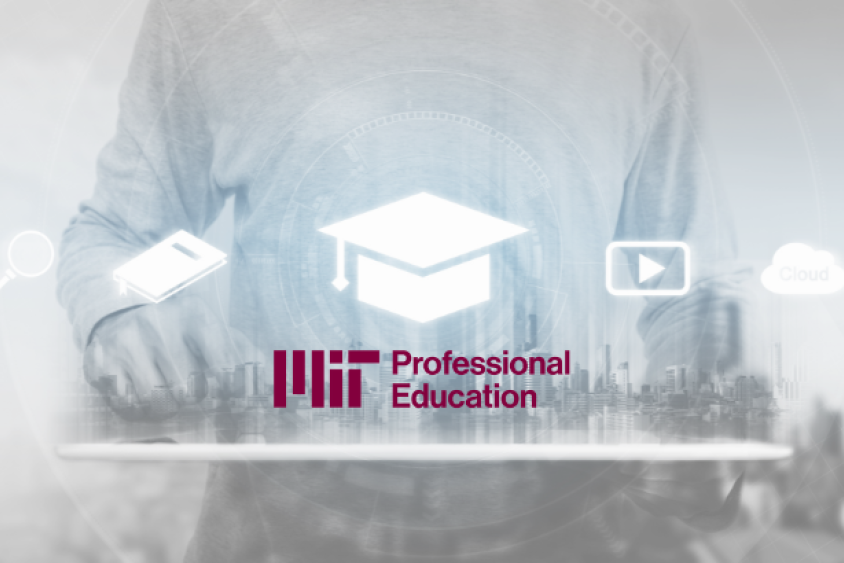Why Sustainability is Key to the Future of Professional Education

Here, Siddiqi offers her thoughts on why professional education is important to driving sustainability outcomes, how busy professionals can keep up with a rapidly evolving sustainability landscape, and what trends may shape professional education in the coming years.
Q: Why is it important for employees across different lines of business to pursue sustainability education?
Siddiqi: This is perhaps one of the most fundamental issues that affects us, as human beings who live on the only home planet that we have. It’s important for everyone to understand how human actions and decisions are creating planetary-level effects in the present and the near future. I don’t think there’s anything more urgent.
The chief sustainability officer, at the end of the day, is both the cheerleader and the final reporter for an organization. But everything else happens within the different divisions of a company. If sustainability issues aren’t understood across the enterprise, opportunities are going to be missed, and there’s a risk that real change won’t happen.
Q: Things are evolving so quickly in sustainability—where it seems like new regulations, incentives, practices, and technologies are popping up all the time. How can professionals keep up with this pace of change?
Siddiqi: We’re still trying to figure out the best data to use, so that remains a consistent challenge. But rather than being completely wedded to or constrained by data availability, the most important thing is to recognize whether issues of sustainability are truly owned and valued at a strategic level. If that’s the case, then important decisions relating to sourcing, operations, and supply chains can continue to improve, and each organization can continue to find its own best approach.
The idea of making decisions with limited data isn’t new—whether that’s uncertainty around revenue forecasting, fluctuating demand, or technology changes. A lot of important decisions are often made with very limited data. Nobody knows the future perfectly. So, if corporations take this same approach when it comes to issues of sustainability, they can find ways forward, the same way they have in the past for many important decisions.
What is needed is a fundamental understanding and appreciation of the issues that affect our environment, and how environmental change may affect businesses and organizations. Once professionals have knowledge about the fundamentals, they can equip themselves to keep up with the latest changes.
Q: What impact will emerging technologies like artificial intelligence and virtual reality have on the future of professional education?
Siddiqi: As some of these technologies become cheaper and easier to use, there is a place for them. But I get a little worried when the impact is predicted prematurely. I can see where AI could be useful in speeding up scientific research, but it’s not going to supplant human teachers. Flight simulators have been around for decades to train pilots and teach operations of aircraft. Now virtual reality technology is becoming more mainstream in other sectors and opening new possibilities for training, so that is really exciting. But I’m reminded of all the predictions people made when online classes first popped up—this idea that brick-and-mortar universities were going to disappear. That didn’t happen. So I would be cautious with any grand claims that AI or VR are going to completely supplant traditional ways of teaching and learning.
Q: What other trends do you see shaping the future of professional education?
Siddiqi: I really think we’re going to see a return to more hands-on learning, especially in fields like sustainability, where it’s so important to experience the natural environment. You can’t get everything in a digital format. We’ve made this shift to remote learning, and that has opened up a whole new world of possibilities in terms of connecting people and relaying information. But the digital world is virtual. It is constructed. It is human-made and presented. So while some things are absolutely great—instant communication, information storage and processing, and computation—if we’re going to be serious about understanding challenges of sustainability, experiential learning is going to be essential.
Q: What role do you see professional education playing in the sustainability landscape in the near future?
Siddiqi: If you look at the rate of new inventions and technological change, it is just breathtaking and impressive. At the same time, environmental change is occurring in ways that require us to re-think and re-design many systems differently from what was done in the past. Additionally, social norms are evolving and many communities are concerned about human well-being and environmental conditions. These trends of change in technology, environment and society all make professional education even more important than it ever was. In my opinion, it will continue to gain importance as new advances are made and people want to keep in touch with what’s happening in the field and be knowledgeable of critical issues impacting their professional as well as personal futures.


